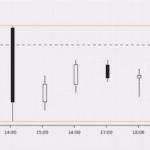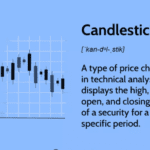How Geopolitical Events Shape Currency Movements
In today’s interconnected world, geopolitical events have a profound impact on financial markets, particularly currency movements. Political instability, trade policies, conflicts, and diplomatic relations can cause fluctuations in exchange rates, affecting economies and investors alike. Understanding these dynamics is crucial for traders, businesses, and policymakers.
The Link Between Geopolitics and Currency Markets
1. Political Stability and Investor Confidence
Currencies thrive on stability. When a nation experiences political uncertainty—such as elections, government changes, or social unrest—investor confidence declines, often leading to capital outflows. This weakens the local currency as investors seek safer assets, such as the U.S. dollar or gold.
For example, during the Brexit referendum in 2016, the British pound (GBP) saw a significant decline due to uncertainty surrounding the UK’s exit from the European Union. Investors were wary of economic repercussions, leading to a sharp drop in the currency’s value.
2. Trade Wars and Economic Sanctions
Trade disputes and sanctions directly influence currency values. When two major economies impose tariffs on each other’s goods, it disrupts global supply chains and affects economic growth.
A prominent example is the U.S.-China trade war, where the Chinese yuan (CNY) depreciated against the U.S. dollar (USD) as tariffs imposed by the U.S. threatened Chinese exports. This devaluation was partly strategic, as a weaker yuan made Chinese goods cheaper, offsetting tariff costs.
3. Military Conflicts and Regional Instability
Military conflicts and geopolitical tensions often lead to currency volatility. Investors tend to move capital away from conflict zones and towards safe-haven currencies such as the Swiss franc (CHF), Japanese yen (JPY), or U.S. dollar.
For instance, the Russian invasion of Ukraine in 2022 led to a sharp depreciation of the Russian ruble (RUB) due to sanctions and capital flight. Conversely, the U.S. dollar strengthened as investors sought stability in the world’s reserve currency.
4. Energy and Commodity Dependencies
Countries that rely heavily on commodity exports, such as oil, are particularly vulnerable to geopolitical disruptions. Supply chain disruptions or embargos can lead to price spikes in commodities, affecting the currencies of exporting nations.
For example, when oil prices surged due to OPEC production cuts, oil-dependent currencies like the Canadian dollar (CAD) and Norwegian krone (NOK) strengthened. Conversely, countries heavily reliant on oil imports, such as India, saw their currencies weaken due to rising import costs.
5. Central Bank Policies and Global Reactions
Geopolitical events instability often forces central banks to intervene in currency markets. They may adjust interest rates, conduct foreign exchange interventions, or impose capital controls to stabilize their currency.
For example, after geopolitical tensions between the U.S. and Iran escalated in early 2020, market uncertainty led to increased demand for safe-haven assets, influencing central bank policies worldwide to maintain economic stability.
Conclusion on How Geopolitical Events Shape Currency Movements
Geopolitical events play a crucial role in currency movements, impacting economies and financial markets globally. Investors and businesses must stay informed about geopolitical developments to anticipate currency fluctuations and mitigate risks. As global events continue to shape the financial landscape, understanding these dynamics will remain essential for navigating the complexities of the foreign exchange market.
Stay Updated and Be Prepared
For those involved in international trade, investing, or policy-making, keeping a close eye on geopolitical events and developments is key. Diversifying investments, using hedging strategies, and staying informed about central bank policies can help mitigate risks in an unpredictable global economy.




